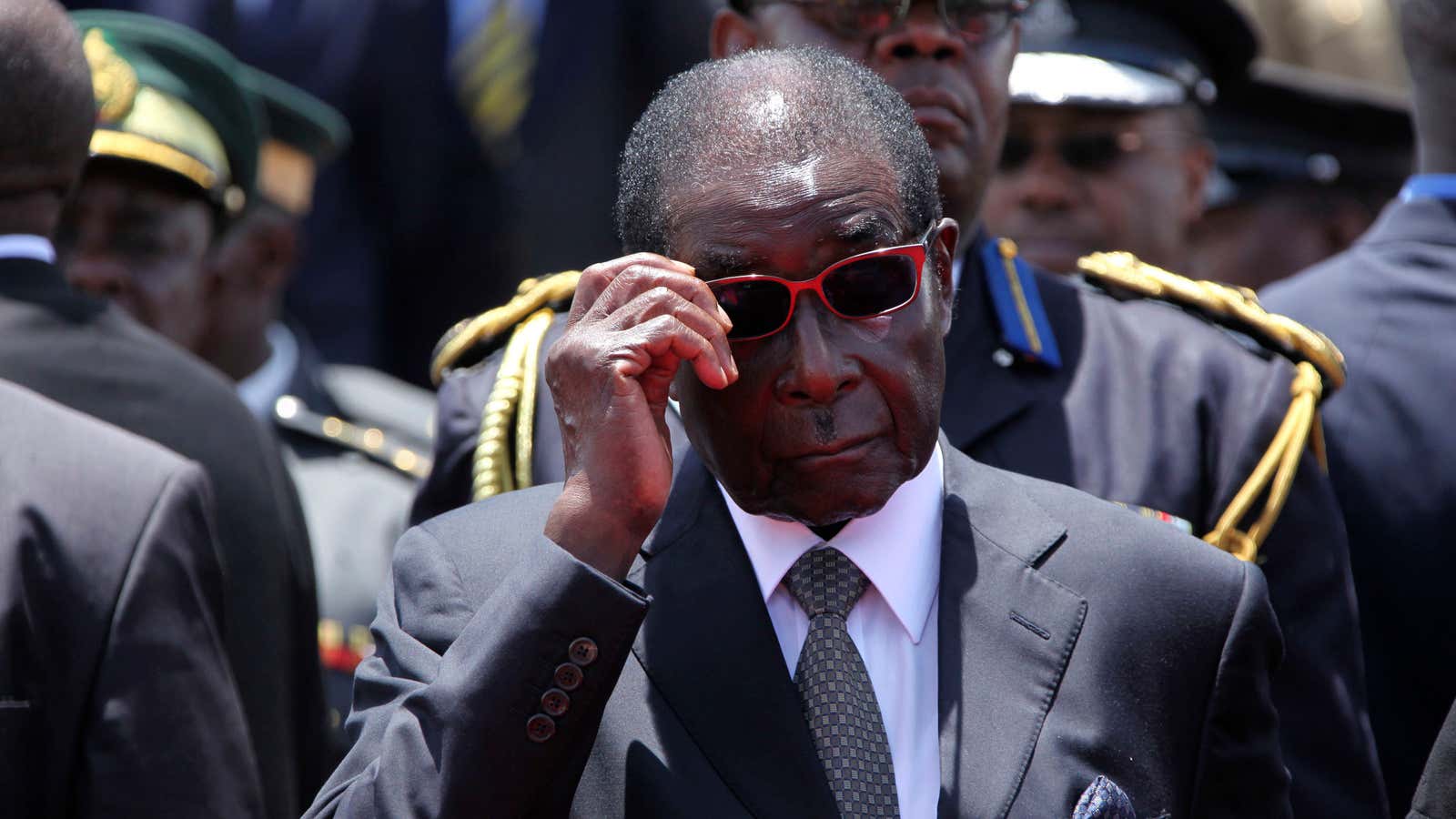Zimbabwe finance minister Tendai Biti says in this AFP report detailing the country’s perilous fiscal situation:
“Last week when we paid civil servants there was $217 (left) in government coffers,” Biti told journalists in the capital Harare, claiming some of them had healthier bank balances than the state.
“The government finances are in paralysis state at the present moment. We are failing to meet our targets.”
That’s not great news for a country looking to a hold an election, which will cost $104 million, in the next year, and Zimbabwe says it will need international help for the referendum. The country is ruled by a tenuous power sharing agreement between President Robert Mugabe, whose economic cronyism helped wreck the country’s economy, and opposition lead by former unionist Morgan Tsvangirai.
While the country no longer suffers from hyperinflation that made it a watchword for currency fears, and it is expected to expand its economy some 5% this year, the endemic corruption in Zimbabwe makes the regular and transparent collection of taxes, especially from the country’s diamond and platinum mines, a challenge.
Transparency International has recently released a report implicating senior government officials in diamond industry fraud, and international organizations like the IMF have urged the country to bring more transparency to the sector, if only to pay the government’s $3.8 billion budget and deal with the country’s external debt overhang.
But action against corruption probably won’t come until the end of Mugabe’s reign, and a new constitution coming up for a referendum this spring—presuming the funds can be found—might set up the aging autocrat for another term in power.
